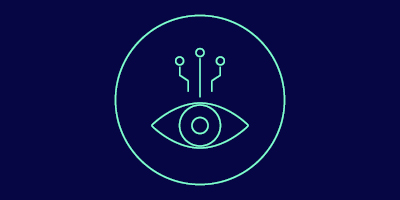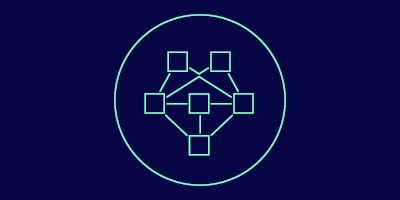New report: Trends in Learning 2023

Foreword
The Open University (OU) has been producing its annual Trends in Learning reports for over a decade, exploring innovations in workplace learning and what they mean for the business community. We look at how learners are learning today and what’s on the horizon - what’s new and exciting? What innovations and perspectives are changing how we learn? How do we think about and design learning? And how will that impact on how we shape and access learning in tomorrow’s world?
The trends we chose – and there are six in the 2023 report – come from another annual OU report. The Innovating Pedagogy report focuses on innovations in the education sector, discussing new approaches to learning and how thinking and practice are changing. We take the trends that are most relevant to the workplace and look at them through a business lens. Some of the trends are still emerging and it will be a little while until their true form is understood, while others are already big news (ChatGPT, for example) and have started to have an impact on learning and the business landscape. Some we have had our eye on for several years, but it’s only now that they are on the cusp of entering the mainstream.
Both of the reports draw on the most recent, insightful thinking and research from the OU’s Institute of Educational Technology. Each year, we partner up with a different organisation from around the world, incorporating their research and insights into learning trends. This year’s partner is the University of Cape Town’s Centre for Innovation in Learning and Teaching.
So, what six trends have we chosen for 2023's report? They are: advances in AI, the metaverse and learning, challenge-based learning, entrepreneurial learning, seeing yourself in the curriculum and multimodal learning. In the report, we discuss each of the trends in turn, why we think they are important and the impact they are already having or will have on workplace learning. We have also interviewed six people, experts in their field, to find out their opinions and experiences of the trends, sharing their insights in the report.
Professor Agnes Kukulska-Hulme
Institute of Educational Technology
The Open University
2023's trends
Pedagogy for advances in AI
Using AI tools such as ChatGPT to support learning
Multimodal learning
Enhancing learning by diversifying communication and representation.
Seeing yourself in the curriculum
Enabling learners to see themselves in the curriculum.
Metaverse in education
Learning opportunities through fully immersive 3D environments.
Entrepreneurial learning
Learners as change agents in society.
Challenge-based learning
Rising to challenges.
About our six trends
Throughout 2023 we decided to focus on different trends month by month, starting with advances in AI. We decided to launch with this trend because generative AI is already sending shockwaves through learning and has implications for how organisations create, evaluate and assess learning. When we published our 2022 report, ChatGPT hadn’t even launched yet. Now, it’s hard to find anyone who hasn’t heard of ChatGPT, with huge numbers of people already using and advocating it.
These are exciting times, with so many innovations and so much potential for new ways of learning and working. But, change happens so quickly now and some of these trends are going to be transformative, which is why it’s so important that L&D and business keep abreast of what’s happening and what the trends mean for them and their community.
I lead the Learning Futures programme at the OU, a research-based programme that analyses emerging themes and innovations in educational technologies, teaching and learning practices.
We are increasingly describing more complex learning environments, in which there’s a combination of physical spaces and virtual spaces. Bit by bit we are adding to our knowledge of what it means to work and learn across physical and virtual spaces, refining our understanding and connecting emerging pedagogies that do that. At the same time, we are also developing our understanding of the different types of knowledge that are valued and can be included in education and learning – different voices that can come through and the diversity of skills that are involved.
These environments are quite challenging for learning professionals. They are interesting and offer a lot of possibility, but they can also be difficult to understand, being complex and sometimes multi-layered. Many of these pedagogies require a different mindset, so learning professionals actually need to become learners themselves.
AI and ChatGPT, for example, really challenge learning professionals to rethink learning, particularly around assessment. In its current form, ChatGPT largely generates text, bringing us back to text culture for the time being. And because it generates text, it makes us reassess assessment. These tools also make us rethink the role of learning professionals and learning in general. What is it that the tools can do? AI will replace some of the functions of learning professionals so we need to think about learning professionals working hand in hand with AI to enhance learning. When employees start to use these tools, which many of them already are, you have to confront it. ChatGPT is the tool that everybody is talking about but there are many other tools as well. That in itself is an eye opener – what is out there that people don’t know about yet? We, at the OU, will definitely come back to this trend as the tools proliferate and as we understand more about how they are changing the learning landscape. The change is momentous so we will keep monitoring it.
The metaverse is another interesting one. We are in the very early days of it, even though things like Second Life have been around for a long time. In the next few years, there will be a big shift and suddenly, everyone will be in the metaverse. What’s fascinating is that we will be able to do things in the physical world that will also happen in the virtual world and vice versa. But, we also need to think about inclusivity because any tool that depends on sophisticated tools, such as the metaverse, is unlikely to be accessible to everyone. There’s a tension between tools that democratise learning – opening up access to different types of learning – but are also not necessarily inclusive due to issues around cost.
Inclusivity is an underlying theme of some of the other trends – seeing yourself in the curriculum for example. This approach moves away from a monolithic view of education and learning. Typically, workplace learning is based on materials made in Western countries for a certain audience. People can access those materials, but do they speak to them and their context? Increasingly, people want to have their knowledge, experiences, language and context respected and reflected in their learning. This is partly about the use of diverse languages in learning and enabling learners to use their own language, but it’s also broader and deeper than that.
For a long time, learning circles have talked about taking a learner-centred approach. It’s finally happening, with trends such as Seeing yourself in the curriculum. It’s about framing the learner experience differently, empowering the learner in how the curriculum is constructed and developed and how they see themselves in it. And it’s about valuing the contribution that they can make, from their perspective.
Multimodal learning also looks at different ways of knowing, diversifying the representation of knowledge. Traditional education and learning have been very text based, with learning being delivered and written down or printed out, but now we have to consider the full repertoire of different modes and modalities of learning and spaces. We still want classroom based training, but it’s one of a number of options available.
With entrepreneurial learning, organisations need to consider the full range of skills that people have – those that are gained through formal education, and those gained from more informal learning and experiences. Maybe employees have skills around video production and blogging that they have developed in their own time. They are really useful skills that can be harnessed and used for entrepreneurial learning activity. Traditionally, entrepreneurial learning has been associated with business and management courses and so hasn’t been very inclusive. We need to broaden our perspective and mindset to develop entrepreneurial skills – for example, someone’s ability to take the initiative, create something new and bring others along with them.
Challenge-based learning is another timely one. People always need to have an element of struggle and challenge to learn. It can be inspiring to have big challenges to work towards – sustainability goals and societal challenges are big challenges, for example. Challenges can be something that individuals tackle, but they are also good for bringing people to work together collaboratively. You often get multi-skilled and multi-disciplinary teams coming together to identify a challenge and work on it.
Innovation is always about looking at things differently and being open to change and you can see that in all of the trends. There also needs to be an openness to ambiguity and to unknown outcomes. There’s a lot about new ways of communicating - new learning spaces where people congregate and exchange knowledge – and about relating learning to real world problems and to people’s contexts and cultural backgrounds.
Read the original report behind Trends in Learning
|
The Innovating Pedagogy report is an annual report co-authored by academics at the OU's Institute of Educational Technology, and this year, together with researchers from the LIVE Learning Innovation Incubator at Vanderbilt University in the US. |
Please contact us to speak to one of our business team advisors.
Not on our mailing list?
Sign up to receive regular emails that are full of advice and resources to support staff development in your organisation.

.jpg)




